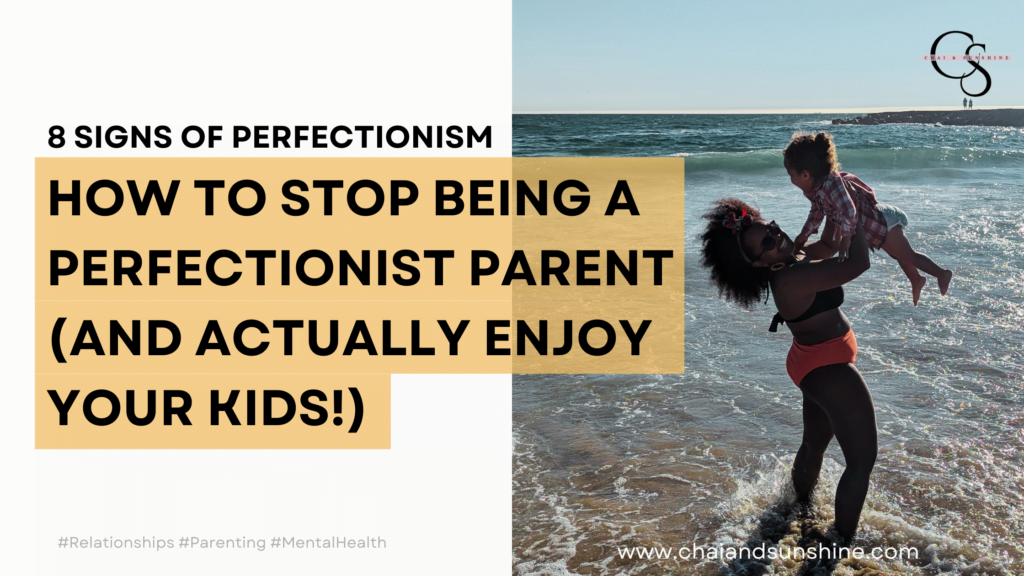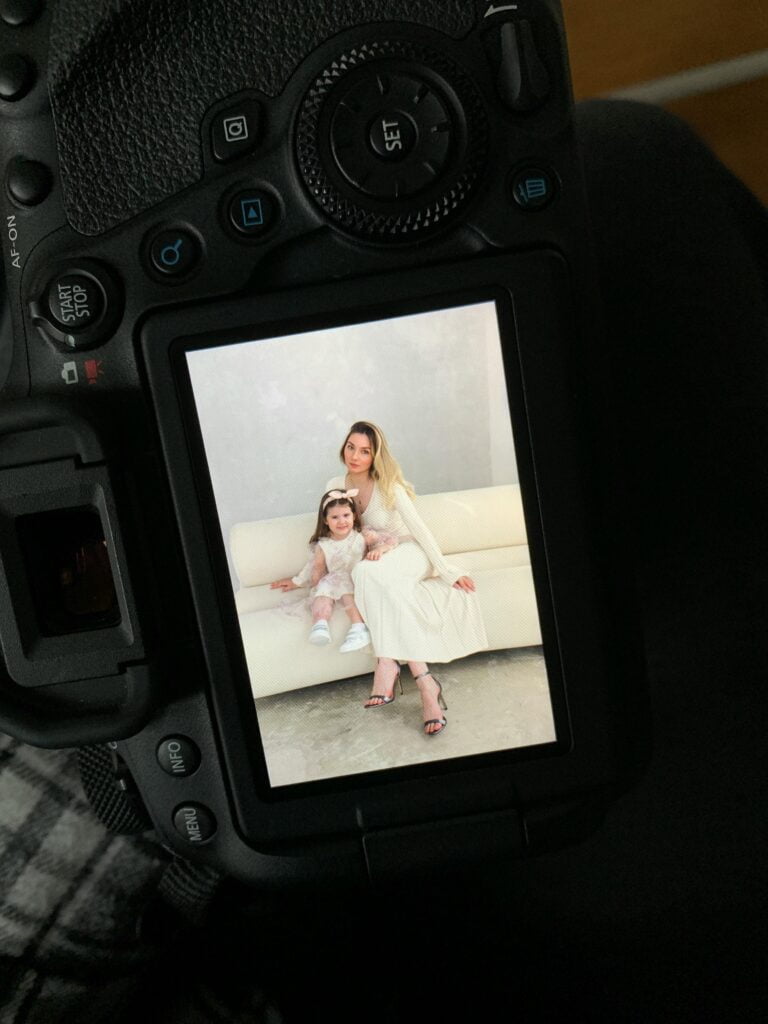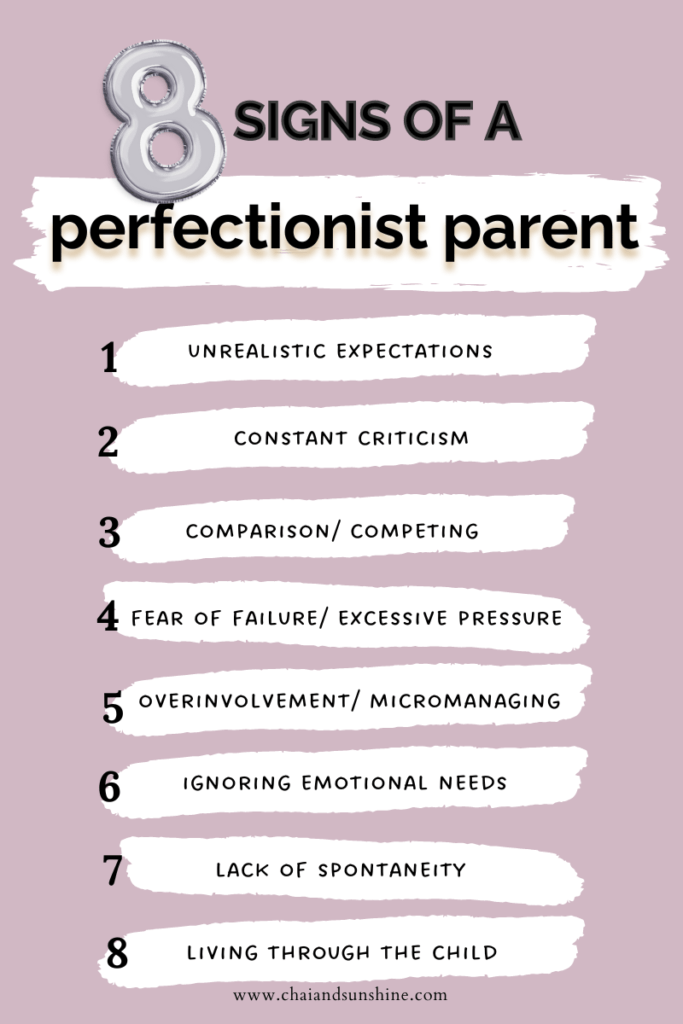
I’m writing this “how to stop being a perfectionist parent” post specifically for my husband, knowing full well that he will likely never read it.
The topic came up yesterday.
“I feel like we’re failing,” he told me, out of the blue. “The house is always a mess, we never give them proper meals, and they watch too much TV.”
“Wow,” I thought. “He sounds just like my inner voice from back when I was depressed.”
But thanks to that horrendous PPD experience, I knew exactly what was going on with my otherwise carefree hubby.
So, I told him.
“You’re being too perfectionistic,” I said. “You’re holding yourself up to unrealistic standards and feeling terrible about a problem that isn’t really there.”
He nodded. “I agree,” he said. But I knew it wouldn’t be enough.
Because, unfortunately, diagnosing the problem and knowing how to fix it are two different things.
So, this post is my way of deciphering how I was able to stop being a perfectionist parent and actually enjoy my kids.
Then, I’ll report back to my husband because he’s yet to read a full Chai and Sunshine article.
And, in the meantime, I hope it helps you, too.
Table of Contents
Toggle8 Signs of a Perfectionist Parent
Note: these tendencies can be either self-directed (not feeling like a good enough parent) or directed at the child (being hard on them so they can reach your high standards). You might find that it’s a little bit of both. You also don’t need to tick off all 8 signs to make some changes.
1. Unrealistic Expectations
Setting unrealistic and often unattainable standards for yourself or your child. Not taking into account the present resources or abilities when setting these goals.
2. Constant Criticism
Frequent or constant self-criticism for your perceived parenting shortcomings (or the “shortcomings” of your child). Focusing on your children’s mistakes rather than their accomplishments.
3. Comparing/ Competing with Others
When you do set unattainable goals and standards, it’s often image-related or superficial. You may also compare your reality to what you see of other parents and their children. This may leave you feeling inadequate.

4. Fear of Failure/ Excessive Pressure
You may have an outsized idea of what the consequences of anything less-than-perfect may result in. For example, “you will never find friends if you’re always looking so scruffy!” You may also have an unhealthy fixation on past mistakes.
5. Over Involvement/ Micromanagement
Directing your kids’ or co-parent’s every action. Getting involved in their lives on a granular level.
6. Ignoring Emotional Needs
Prioritising achievements and portraying a “perfect” image over the emotional needs of you or your child(ren).
7. Lack of Spontaneity
No room for creativity or relaxation. Rigid rules and schedules for you and/or your family dominate your life. (E.g. nap times, dinner times, eating schedules or menus).
8. Living Through the Child
Think “Dance Moms” or “Pageant Moms”. Projecting your unfulfilled dreams onto your child(ren).

Why It's NOT Easy to Stop Being a Perfectionist Parent
Breaking free from the grip of perfectionist parenting can be really challenging. (It sure was for me!)
At its core, it’s deeply rooted in the desire to provide the best possible life for our children. But the fear of making mistakes or falling short can be paralysing. This often results in the very opposite of what we’re trying to achieve, reigniting the cycle of perfectionist control all over again.
But what makes perfectionism really hard to get rid of is that it’s often intertwined with our own self-worth. Because perfectionist parents often lack a strong internal compass, they are more susceptible to adopting external standards.
This means striving for what society deems as excellent rather than listening to your own needs or those of your child. It may also mean getting caught in a cycle of comparison. We look at other parents and their seemingly perfect children, forgetting that everyone faces challenges behind closed doors.
This often stems from various factors, including childhood trauma, complex post-traumatic stress disorder, insecure attachment styles, or underlying issues like undiagnosed OCD or other anxiety-related conditions.
Breaking free requires awareness and a shift in perspective. It means learning to build authentic relationships with yourself and your children, rather than relating to yourself and them solely through achievements.
How to Stop Being a Perfectionist Parent
Societal pressures to achieve, coupled with personal insecurities, often fuel the perfectionist mindset. Additionally, it’s difficult to let go of the illusion of control. As parents, we crave the ability to shape our children’s futures, and perfectionism can feel like a way to exert that control.
The first step to overcoming these perfectionist tendencies is therefore self-awareness. Keep a diary of your thoughts and behaviours, paying close attention to all-or-nothing thinking and catastrophising tendencies.
Like when my husband said that we were “failing” because “the house is always a mess” and “we never give them proper meals”. These cognitive distortions often magnify the consequences of imperfections.
Along with this self-awareness, I recommend practicing deep curiosity about the roots of your perfectionism. Does your perfectionist inner voice sound uncomfortably similar to that of a critical caregiver?
Or maybe by aiming for perfection you’re subconsciously seeking validation from an absent or emotionally distant caregiver. Understanding these underlying drivers is crucial for breaking free from the perfectionist cycle.
Therapy can be an invaluable tool in this process. A trained therapist can provide guidance, support, and strategies for managing perfectionistic tendencies.
By working through past experiences and developing healthy coping mechanisms, you can gradually release the grip of perfectionism and move towards a more nurturing parenting style.
Remember, progress, not perfection, is the ultimate goal. Celebrate small steps forward, and be kind to yourself (and your little ones) along the way.
The Company You Keep

We’re all social beings – even the introverts! And parenting is no exception. The company you keep can significantly influence your parenting style.
Surrounding yourself with people who are genuinely interested in your well-being can help you to let go of perfectionistic control and relax into parenting.
Conversely, associating with overly critical or competitive parents can exacerbate perfectionist tendencies. (We all know the type!)
So go out there and try being honest rather than perfect. Share your struggles, laugh over your mishaps. You’ll be surprised at how good it feels to let go of the imaginary prize of perfection.
(Also, get off Pinterest and Instagram – seriously!)
Final Thoughts
If you’re Googling “how to stop being a perfectionist parent”, I’d say you’re already on the right track. Being aware of perfectionist tendencies is honestly the greatest step forward.
Shifting your focus to your and your child’s overall well-being (rather than achievements) is essential. Focus on building a strong emotional understanding within yourself first, and then with your child. The achievements will come naturally as a result of that unconditional love and support.
Remember, mistakes are opportunities for growth, not evidence of inadequacy. And there is genuinely no such thing as perfect.
Trust me, those of us who had the most “perfect” parents are now filling up therapy rooms across the English-speaking world.

[…] it, fellow parent warriors: Parenting is […]
[…] common symptoms include difficulty trusting others, perfectionism, chronic feelings of emptiness, and struggles with […]